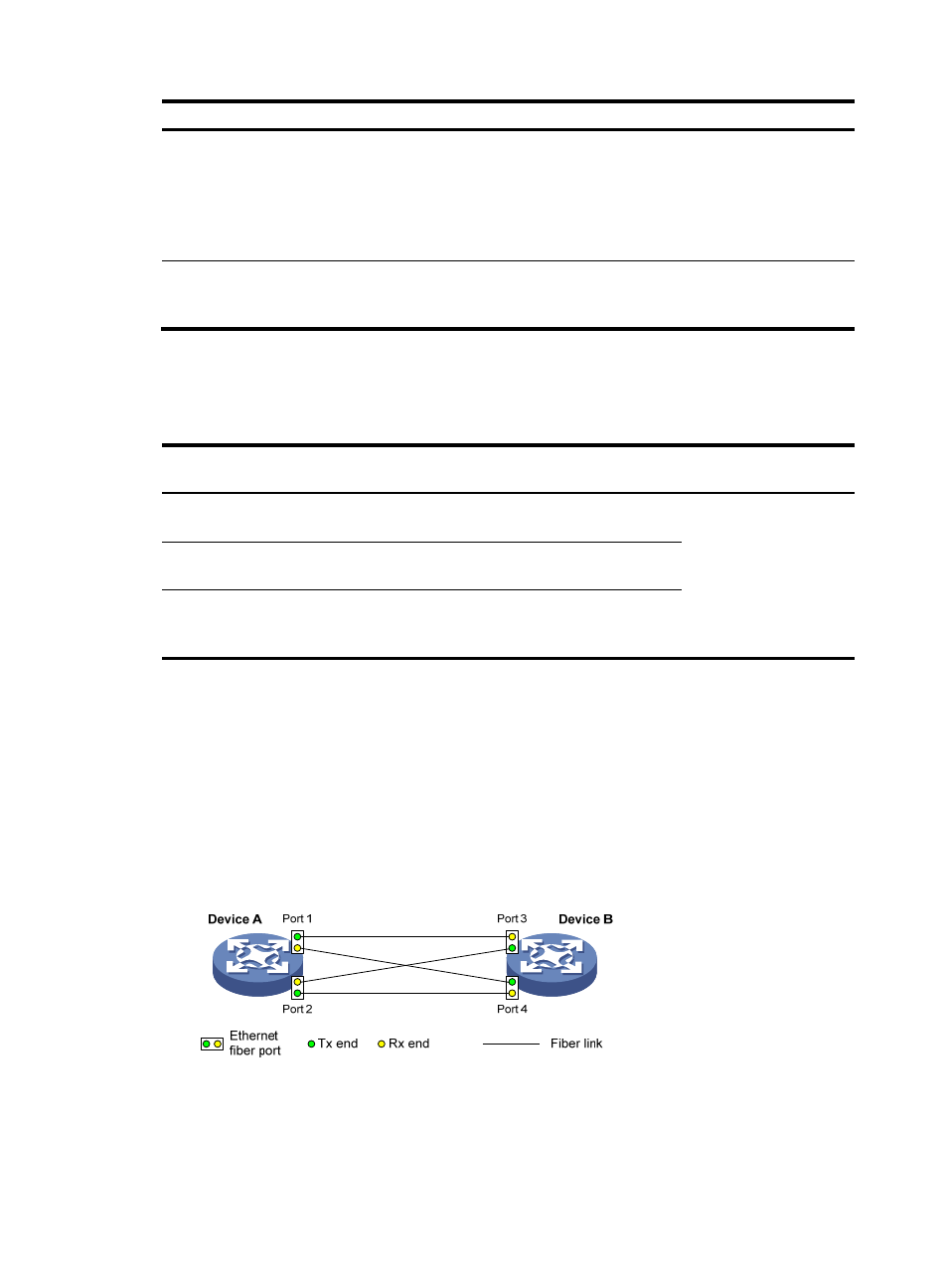Dldp authentication mode, How dldp works, Detecting one neighbor – H3C Technologies H3C S6800 Series Switches User Manual
Page 11

3
DLDP timer
Description
DelayDown timer
If a port is physically down, the device triggers the DelayDown timer (the default
is 1 second and is configurable), rather than removing the corresponding
neighbor entry.
When the DelayDown timer expires, the device removes the corresponding DLDP
neighbor information if the port is down, and does not perform any operation if
the port is up.
RecoverProbe timer
This timer is set to 2 seconds. A port in the Unidirectional state regularly sends
RecoverProbe packets to detect whether a unidirectional link has been restored to
bidirectional.
DLDP authentication mode
You can use DLDP authentication to prevent network attacks and illegal detecting.
Table 4 DLDP authentication mode
Authentication
mode
Processing at the DLDP packet sending side
Processing at the DLDP
packet receiving side
Non-authentication
The sending side sets the Authentication field of DLDP
packets to 0.
The receiving side checks
the authentication
information of received
DLDP packets and drops
packets where the
authentication
information conflicts with
the local configuration.
Plaintext
authentication
The sending side sets the Authentication field to the
password configured in plain text.
MD5
authentication
The sending side encrypts the user configured password
using MD5 algorithm, assigns the digest to the
Authentication field.
How DLDP works
Detecting one neighbor
When two devices are connected through an optical fiber or network cable, enable DLDP to detect
unidirectional links to the neighbor. The following illustrates the unidirectional link detection process in
two cases:
•
Unidirectional links occur before you enable DLDP.
Figure 2 Cross-connected fibers
As shown in
, before you enable DLDP, the optical fibers between Device A and Device B
are cross-connected. After you enable DLDP, the four ports are all up and in Unidirectional state,
and they send RecoverProbe packets. Take Port 1 as an example to illustrate the unidirectional link
detection process:
